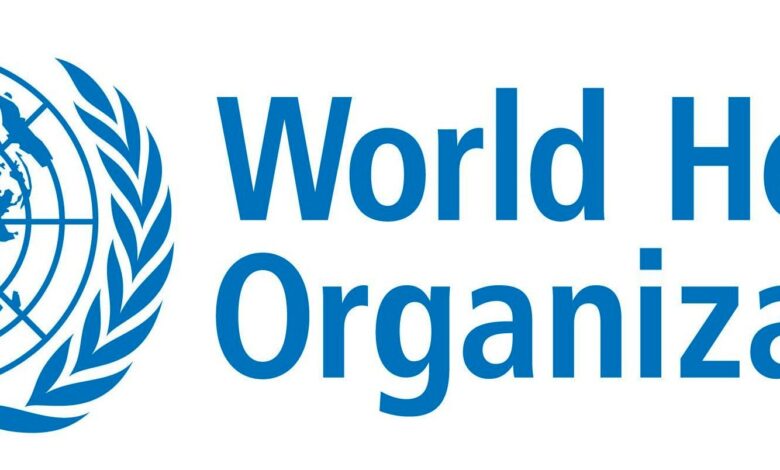Who is Who: WHO’s thirst cannot be satiated by any vaccine as it is a misadventure

Mobilenews24x7Bureau
There is a saying: ‘Don’t point the finger at someone else unless you’re sure your hands are clean.’ This should apply to the World Health Organisation. The WHO, without addressing its failures, weaknesses and vulnerabilities, wants to become a supra-national body, lording over countries through establishing a World Health Council. The idea proposed by Tedros is based on the narrative that national governments have not responded enough to the COVID-19 pandemic, despite advice by the WHO.
The WHO wants more power. It wants the power to direct countries when it feels it is needed. It also wants to initiate activities, within these countries, to prevent a pandemic, enable preparations whenever a pandemic happens, and to push for vaccines and vaccine-based treatments. It wants to radically reorient health systems in countries. It wants to establish a global architecture through changes in governance and financing and ultimately wants to establish itself as a leading health authority. This begs the question, “who is the WHO is competing with?”
The WHO wants more power to enforce vaccine-centric responses. These actions include testing, contact-tracing, isolation, quarantine, masking, physical distancing, hand hygiene, and “effective communication” with the public.
The WHO wants more power to achieve vaccine equality. It wants to address vaccine inequity. It is concerned about vaccine nationalism and vaccine diplomacy. It is not concerned about vaccine profits and vaccine IPRs, which have a fundamental role in inequity and lack of access.
The WHO wants more power to enforce vaccine preparedness. It wants to increase manufacturing capacity of mRNA and other vaccines urgently in Africa, Latin America and other low- and middle-income regions. It believes that since vaccine manufacturing is highly specialized and difficult, boosting production takes time, therefore it wants to begin now. It expects to foster agreements on voluntary licensing and technology transfer.
The WHO is not talking about non-pharmaceutical public health measures. Given its work and special programmes, the WHO can be rechristened asthe WHO for Vaccines. The WHO gets advice from a Strategic Advisory Group of Experts on Immunization (SAGE) on overall global policies and strategies, ranging from vaccines and technology, research and development, to delivery of immunization and its linkages with other health interventions1. The immunity of the human body can be built through food and water, and not necessarily through vaccines, which in any case are not proven to immunize.
WHO Work Review
The WHO worked on several diseases in the past 10 years, incluing several diseases, that have spread internationally. They include SARS, Ebola, H3N2, H1N1, swine flu and many other ‘viral’ diseases. There is not much information about its work on hunger-induced health outcomes, lifestyle diseases, non-communicable diseases and a whole range of other causes of ill-health like food contamination, air and water pollution. Responses from the WHO, as a global health organization, have always been predictably slow, low and non-targeted. It has never before gone into the basic causes that are leading to such disease outbreaks.
Since 2009, at least 11 high-level panels and commissions have made specific recommendations in 16 reports to improve global pandemic preparedness. Many concluded that the World Health Organization needed to strengthen its role as the leading and coordinating organization in the field of health, focusing on its normative work, while receiving more secure funding.
Reviews also suggested improvements in the implementation of the IHR (2005). Some of the reviews have resulted in specific action, including the establishment of the new WHO Health Emergencies Programme in 20162. It appears that the recommendations have not been able to influence the WHO work programme.
The Independent Panel for Pandemic Preparedness & Response, in its report titled: “COVID-19: Make it the Last Pandemic,” said:
‘Although public health officials, infectious disease experts, and previous international commissions and reviews had warned of potential pandemics and urged robust preparations since the first outbreak of SARS, COVID-19 still took large parts of the world by surprise…. It is clear to the Panel that the world was not prepared and had ignored warnings which resulted in a massive failure: an outbreak of SARS-COV-2 became a devastating pandemic.’
The WHO had clearly ignored warnings, prior to December, 2020, and even as the crisis was building up in Wuhan (China). The WHO is now telling us that International Health Regulations amended in 2005, enforced since 2007, have ‘tied’ the hands of Director General of the WHO.
International Health Regulations
The purpose of these International Health Regulations (IHR) is to prevent, protect against, control, and provide a public health response to the international spread of disease in ways that are restricted to public health risks and that avoid unnecessary interference with international traffic and trade. The WHO most probably now wants this section, ‘unnecessary interference with international traffic and trade’, to be removed. Even if one agrees on the seriousness of an impending pandemic, giving overarching powers to the WHO without proper procedure and consultations is tantamount to creating a global dictatorship which overrides national sovereignty.
The World Health Assembly, of the WHO, amended the IHR in 2005, allowing the Director General, an individual, to determine a public health emergency of international concern (PHEIC) and issue recommendations. Between 2007 and 2020, 6 events were declared PHEIC: the 2009 H1N1 influenza pandemic, Ebola (West African outbreak 2013-2015, outbreak in Democratic Republic of Congo 2018-2020), poliomyelitis (2014 to present), Zika (2016) and COVID-19 (2020 to present)3. Yet, the Independent Panel says current institutions, public and private, failed to protect people from COVID-19. The same panel has recommended a fundamental transformation of WHO.
Presently, the WHO is attempting to amend the IHR of 2005. Out of 194 Member States, only 16 Member States (8.2 Percent), some on behalf of regional groups, submitted more than 300 proposed amendments. These amendments covered 33 of the 66 articles of the IHR, and 5 of its 9 annexes. In addition, 6 new articles and 2 new annexes were proposed. IHR amendments are not an agenda for other 178 countries.
Sourced by real-left






